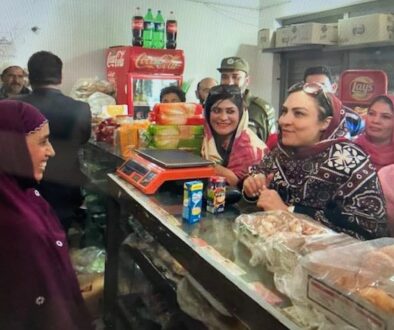Migration report of the World Bank’s Annual World Development Report 2023 – my thoughts and highlights.
Migration has been happening since time immemorial. No nation state is the product of a single ethnic race. Humanity has been tossed around, and stronger ethnic forces within a state have taken majority holding positions and minority ethnic forces have made pockets of their own little kingdoms from a sense of fear and deprivation.
As I opened the pdf of the WB report on Migration 2023, I absolutely adored both the quotes. They mirror my thoughts completely as a Bhittai Sufi humanitarian who believes in borderless humanitarian global governance society.
“The priestly leaders of the Parsis were brought before the local ruler, Jadhav Rana, who presented them with a vessel full of milk to signify that the surrounding lands could not possibly accommodate any more people. The Parsi head priest responded by slipping some sugar into the milk to signify how the strangers would enrich the local community without displacing them. They would dissolve into life like sugar dissolves in the milk, sweetening the society but not unsettling it. The ruler responded to the eloquent image and granted the exiles land and permission to practice their religion unhindered if they would respect local customs, and learn the local language, Gujarati. —Parsi legend
As a global community, we face a choice. Do we want migration to be a source of prosperity and international solidarity, or a byword for inhumanity and social friction? —António Guterres, Secretary-General of the United Nations, 2018″
I have always believed in amalgamation. There might be different versions of it but I do believe that if you decide to migrate you have chosen a country for its values and opportunities and you do need to amalgamate as much as possible in it whilst maintaining your own individuality. I personally don’t think I will ever migrate. I am a proud Pakistani nationalist who chooses to visit many states with the objective of contributing to ‘alam sub abad karai’ (humanity). However, in the process I do believe it is important to respect the norms and cultures of those societies I live in, without compromising on my basic roots. Humanity needs to trump it. I speak form a vantage point and I have never had to suffer the trials and tribulations of migration. Thus this report’s analysis in my words is important for the summit of the future and the future of the SDGs in which I so passionately believe.
Here is a summary of what I consider key in the report:
- There are 184 mm migrants worldwide of which 43% live in low and middle income countries.
- The inequalities have made migration issues problematic between countries.
- Whilst skills and productivity to host countries are key, so are the remittances to countries of origin. Thus net net the world or humanity needs to benefit from migration and SDGs need to improve not deteriorate if only humanity’s basic principles of decency and anti-racism can be held above all.
- The most effective way of making any sense of migration is the “Match-Motive Framework”. Matching the skills is the relatively easier part of the equation. Managing the motive which could be a migration move due to persecution creates international legal obligations which from a humanitarian international law perspective must be met.
- Whilst many of us see migration from our countries as brain drains, if the remittance structures are well managed by lowering transfer costs.
- Certain facts are key:
- Once migrants are naturalized they are no longer migrants.
- Demographic changes across different states is making migration a necessity. High aging affluent countries need the migration for their economies not to die a GDP growth rate death.
- Policy objectives need to be to maximize the match for both country of origin and destination so that GDP growth rates are positively impacted in both. However, where the match is weak the costs of the mismatch need to be shared and reduced multilaterally. By imposing restrictive policies on entry creates a web of transit country messes which eventually impact the global system which no one country can escape the damage of; thus it is better left in the hands of humanitarian lawyers.
- Origin countries need to be encouraged to build migration for development so that they receive better returns. Similarly destination countries need to match better so as not to create mismatches and problems of amalgamation and racism in their territories.
- “Refugee situations should be managed as medium-term development challenges and not just as humanitarian emergencies”.
- “destressed migration needs to be reduced while respecting people’s dignity.”
The message of this report is not a binary approach of… good or bad migration. It is instead an informed debate about how migration can work for GLOBAL development.
The recommendations are on page 16 of report World Development Report 2023: Migrants, Refugees, and Societies (worldbank.org) g
I have reproduced the recommendations so that at the summit of the future the direction is clear and policy makers, corporate leaders move away from xenophobia to informed migration matching policies which bring out the best GDP growth rates for member states and profitability for corporates whilst maintaining dignity for migrants. In the final analysis we need to adhere to the UN declaration of human rights in form and spirit and not treat migrants as children of a lesser God.
